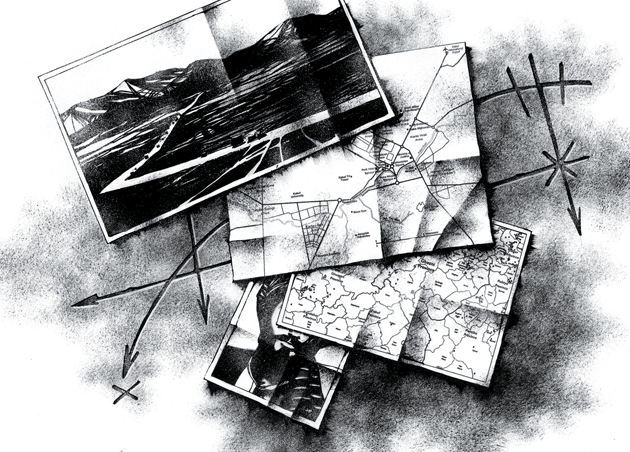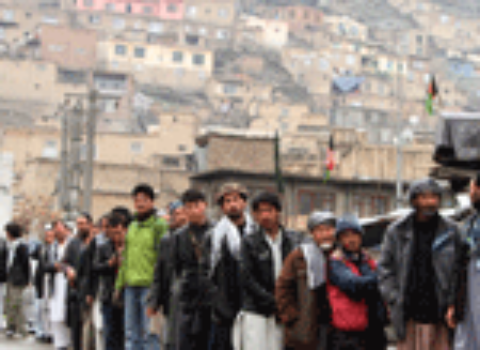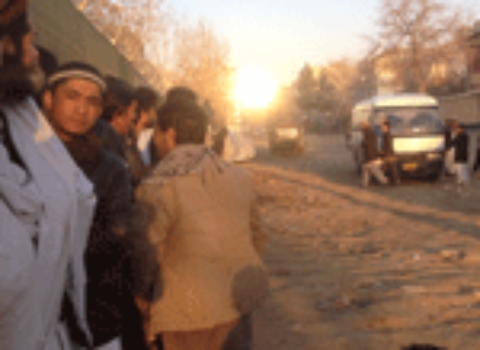Days after his promotion to deputy leader of the Pakistani Taliban (TTP), Latif Mehsud, a curly-haired man of about thirty, fell into the hands of the American military. It was early October 2013, and Mehsud had just crossed into eastern Afghanistan, reportedly on his way to Kabul for a secret meeting with government officials. U.S. Special Forces intercepted Mehsud’s convoy in Logar province, about ninety minutes south of the Afghan capital, and dispatched him to Bagram Airfield. Aimal Faizi, a spokesman for President Hamid Karzai, explained to reporters that Mehsud had been traveling under the aegis of Afghanistan’s National Directorate of Security (NDS) and that he had been in contact with the agency for some time. Faizi attempted to downplay Mehsud’s prominence, calling him “part of an NDS project like every other intelligence agency is doing,” but Karzai was rumored to be livid. Two weeks later, the TTP’s top commander was killed in an American drone strike. Latif Mehsud had been one step away from becoming the leader of Pakistan’s most threatening insurgency.
What was the “NDS project,” the reason for the convoy to Kabul and for Karzai’s subsequent anger? According to several senior Afghan security officials, who spoke to me on condition of anonymity, Mehsud—who had made several visits to Afghanistan soon before his arrest—was being courted by the NDS to serve as a proxy in Afghanistan’s increasingly intense struggle to resist Pakistani interference. By cultivating influence with the TTP, the Afghan government hoped to strengthen its bargaining position with its problematic neighbor. One source told me that the NDS had persuaded the TTP to demand an office abroad in its peace talks with the Pakistani government, just as the Afghan Taliban did last summer, and that the intelligence agency has been working to dissuade clerics in Pakistan from urging holy war across the border. “We saw that begging alone wouldn’t get us anywhere,” an official told me. “When we sit down with Pakistan to ask for action over the Afghan Taliban, we want to have—or to be seen to have—something they need.” (Rahmatullah Nabil, the director of the NDS, acknowledged that his agency had had “temporary contact” with the TTP, but denied that the militant group was being groomed as an Afghan proxy force.)
Mehsud’s arrest in Logar serves as a striking reminder of a similar event nineteen years ago, soon before a young student named Qari Ahmadullah, the subject of my article in this month’s issue of Harper’s, joined the nascent Afghan Taliban. In October 1994, a thirty-truck convoy on its way through Afghanistan was hijacked in Kandahar province, in a district called Takht-e-Pul. Keen to secure a route to central Asia, and with the government in Kabul paralyzed by infighting, Pakistani authorities had tried to bargain a right of passage with provincial warlords. As the Pakistani journalist Ahmed Rashid explains in his excellent book Taliban: Oil, Islam, and the New Great Game in Central Asia (2000), Pakistan’s interior minister at the time opted to go ahead with the convoy despite having failed to reach an agreement. Warlords in Kandahar seized the convoy, which they suspected, according to Rashid, of “carrying arms for a future Pakistani force” (many of the drivers were former soldiers). After Pakistan failed to negotiate the release of the trucks, it recruited a proxy force from among the small groups of Afghan seminary students who had already taken up arms around greater Kandahar. In coordination with some of the higher-profile members of the convoy—Mullah Borjan, who would become one of the most popular commanders of the Afghan Taliban; Mullah Nooruddin Turabi, the Taliban’s future justice minister; and Colonel Imam, a veteran of Pakistan’s Inter-Services Intelligence (ISI) who had trained at Fort Bragg—the students routed the hijackers. Qari Ahmadullah was soon put in charge of Takht-e-Pul, essentially one of the first conquests of the group that would come to call itself the Taliban.
Shortly before Latif Mehsud’s arrest, President Karzai gave an interview with the BBC in which he alluded to his country’s longtime struggle with Pakistan. “We know that Afghanistan’s neighbors, if ever they want to come to Afghanistan, will not ride into our country with the tanks and airplanes,” he said. “They will be sending the fifth column, the undercover people under different names.” For Afghanistan, vulnerable at this time of political transition, the attempt to gain sway over the TTP, to establish its own fifth column abroad, could be perilous, particularly if Pakistan decides to retaliate rather than negotiate in the face of proxy pressure. Above all, if Karzai’s government can learn one lesson from Pakistan’s past experiments, in Takht-e-Pul and elsewhere, it is that proxies often go astray. Colonel Imam, the ISI operative who helped bolster the Afghan Taliban in the 1990s, was executed on camera at the hands of Hakimullah Mehsud, and Mullah Fazlullah, who now leads the TTP’s insurgency against the Pakistani state, formerly fought for Pakistan’s interests in Afghanistan. There is no guarantee that this same Fazlullah—or Latif Mehsud, if he is released—will not turn his rifle once more on Afghanistan.






